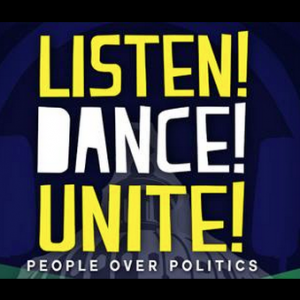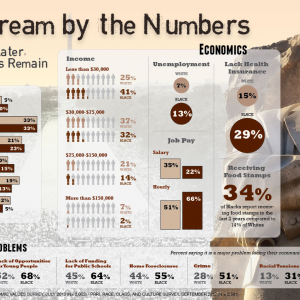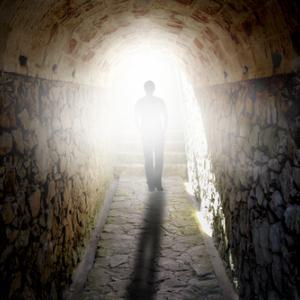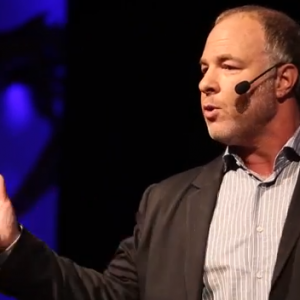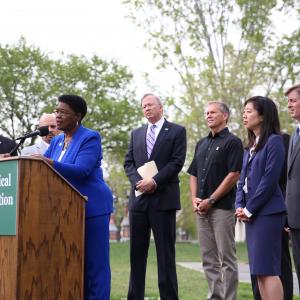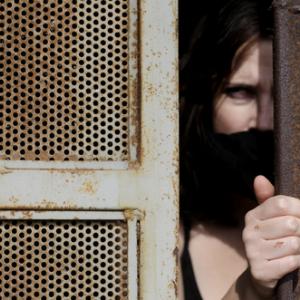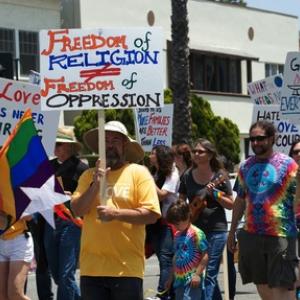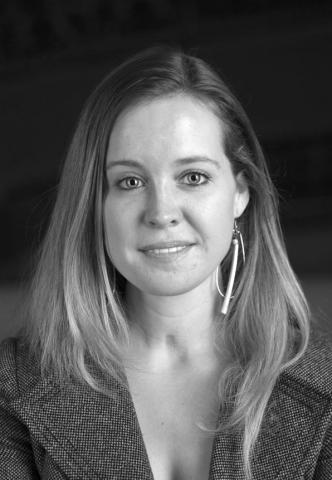
I'm deputy web editor for Sojourners, where I report on culture, tech, and religion, and look for voices to contribute to conversations on faith, spirituality, justice, innovation, and daily life. A collection of my reporting on sexual abuse and Christian communities, "I Believe You: Sexual Violence and the Church," was published in 2014 (avail on Amazon).
Beyond the religion beat, I also write on business, tech, community innovation, nostalgia, loss, collective memory, and war, with work appearing in the Atlantic, Pacific Standard, the Washington Post, Think Progress, and Books & Culture. In 2014, I spoke on collaborative solutions and "Do It Together" design models at SXSW in Austin, Texas.
My favorite postures are ethnographer and producer — reporting on the spread of subcultures, ideas, objects, and beliefs through time and place; and creating the conditions for others' voices and talents to thrive.
My nonofficial, not-so-subtle goal is to keep D.C. weird. Hold me to it.
Posts By This Author
A New Normal: Ten Things I’ve Learned About Trauma
I wasn’t really expecting painful things to happen to me.
I knew that pain was a part of life, but — thanks in part to a peculiar blend of “God-has-a-plan” Southern roots, a suburban “Midwestern nice” upbringing, and a higher education in New England stoicism — I managed to skate by for quite some time without having to experience it.
After a handful of traumas in the last five years, things look different now. Trauma upends everything we took for granted, including things we didn’t know we took for granted. And many of these realities I wish I’d known when I first encountered them. So, while the work of life and healing continues, here are ten things I’ve learned about trauma along the way.
In Nation's Divided Capital, Group Hopes Dancing May Foster Unity
Last night, the United States Capitol building overlooked an unusually frolicsome scene: a DJ spinning Rihanna and Calvin Harris, glow sticks bobbing on wrists and ankles, and dozens of young people dancing across the soggy West Lawn.
“It’s not the craziest thing we’ve seen at the Capitol,” said a police officer observing the after-sundown boogie. “But I don’t really know what’s going on. I think it’s some kind of Christian dance party.”
The event, billed by organizer Two Planks Productions as the “first-ever dance party held on the grounds of the U.S. Capitol”, sought to bring unity to the nation’s divided capital and “put people over politics” through a night of dance music hosted by Washington DJ Stylus Chris. More than one hundred dancers, including some passers-by, joined throughout the night.
50 Years from Now — Infographic Shows How Far We Have Yet to Go on Racial Equality
Yesterday’s “Let Freedom Ring” ceremony in Washington, D.C., honored the nation's substantial advances in racial equality in the fifty years since Dr. Martin Luther King, Jr. delivered his now-iconic “I Have a Dream” speech.
But events this year — from the Supreme Court gutting the Voting Rights Act to the House eliminating funding for food stamps to the Trayvon Martin trial — are posing serious challenges to our national progress towards true equality for all.
An infographic from the Public Religion Research Institute, "The Dream by the Numbers," highlights systemic inequalities that still work against communities of color today. The statistics are grim: black communities are unemployed at nearly double the rate of white communities. Fewer than 20 percent of black youth will receive a college or graduate degree. Twice as many blacks lack health insurance as whites. And nearly 70 percent of blacks surveyed mentioned “lack of opportunities for young people” as a top concern for their community.
Presbyterian Group Appoints First Openly Transgender Director of Mainline Protestant Organization
More Light Presbyterians, a network of congregations and individuals in the Presbyterian Church (USA) that advocates for LGBT inclusion, today announced Alex McNeill as their new executive director. McNeill is the first openly transgender person to lead a mainline Protestant organization.
McNeill, a longtime advocate for gay, lesbian, bisexual, transgendered, and queer Christians, has longstanding roots in the church.
“[The church] embodies the belief that faith calls us to action. We have a commitment to live out our call to care for the poor, for the hungry, and for the outcast. So we seek to not just teach values, but to equip people with tools for social justice,” he continued.
‘How Far Is Too Far?:’ Sexuality and Sexual Violence on Christian Campuses
Unfortunately, sexual violence on college campuses is a widespread reality. As many as 20-25 percent of women will face attempted or completed assault over the course of their college tenure. Contrary to popular myths about “stranger-danger,” 9-in-10 of those victims will know their attacker.
Waiting for the Courts: Hopes and Fears Over DOMA & Prop 8
This week the U.S. Supreme Court is expected to hand down decisions on two significant cases for same-sex marriage: United States v. Windsor (regarding the Defense of Marriage Act, or DOMA), and Hollingsworth v. Perry (regarding California’s Proposition 8).
At the Supreme Court this morning, an expectant crowd gathered hoping to catch the decisions firsthand. Most in attendance were visibly supportive of same-sex marriage, and many were cautiously optimistic that the Court would strike down DOMA, Proposition 8, or both.
See our slideshow and interviews with those gathered at the Supreme Court, below.
Sojo Stories: Dirty Wars
Days before President Barack Obama's high-profile speech on drones and U.S. counterterrorism efforts, Sojourners sat down with investigative reporter Jeremy Scahill to take an inside look at U.S.-led covert wars and the drones that have become an integral part of our global “war on terror.”
His thesis?
"After years of traveling in these countries, I really believe that we’re creating more enemies than we’re killing.”
In some respects, drones are simply a new tool of old empire. Scahill, author of Dirty Wars: The World is a Battlefield and producer of the documentary of the same name, now in theaters, calls this an "unending war ... being legitimized under a popular Democratic president, who is a constitutional lawyer by trade.”
Indeed, within five years, the Bush administration's invasion of Iraq for terrorist attacks the country did not commit has transformed under the Obama administration into pre-emptive assassinations halfway around the world, for crimes citizens have not yet committed. The result, Scahill suggested, is our collective complicity to “unending war.”
'Here is the Steeple:' Church Leaders Take on Sexual Violence Within Their Walls
A movement of lay advocates speaking out against sexual violence is gaining steam in the faith communities. But are similar efforts happening inside church doors?
When it comes to leading denominational conversations on sexual violence, clergy across traditions express twin reactions: encouragement over the protocols already in place and the efforts of fellow advocates; and frustration with a culture of silence around sexual violence in the church. Despite strikingly different experiences across denominations — and church by church — the clergy, church staff, and seminarians who spoke with Sojourners are in agreement that addressing this issue in one’s own house is complicated at every level.
The result: a loss of potential by the American church to be a leading and vibrant institution of radical vulnerability and transformative healing.
Peering in the Dark Corners
Investigative reporter Jeremy Scahill shines a light on U.S. covert wars.
JEREMY SCAHILL SPENT years working out his notions of social justice in homeless shelters and conflict zones and among peace activists. In 2007, Scahill’s award-winning investigative reporting made waves when he published Blackwater: The Rise of the World's Most Powerful Mercenary Army, a comprehensive exposé on the secret role of private military contractors in the United States’ “war on terror,” which prompted several congressional inquiries. Scahill’s newest book, Dirty Wars: The World is a Battlefield, digs into the obscure underbelly of U.S. covert wars.
“In one of my trips to Yemen, I traveled in the south of the country where most of the U.S. drone strikes in Yemen have happened,” Scahill said during a recent visit to Sojourners’ Washington, D.C. office. “I was interviewing a number of tribal leaders. This guy from Shabwa province said to me, ‘[Americans] consider al Qaeda [to be] terrorism. We consider your drones [to be] terrorism.’ I heard that over and over in a variety of countries. ... Many people, in Yemen or in Somalia, would not be predisposed to think of al Qaeda as anything positive. Al Qaeda is a reviled organization in Yemen. ... But there are tribal leaders who are saying, ‘You know, you pushed us into a corner where our people are now sympathetic with al Qaeda.’ After years of traveling in these countries, I really believe that we’re creating more enemies than we’re killing.”
In some respects, drones are simply a new tool of old empire. Scahill’s book title, Dirty Wars (and film of the same name), is partly “a macabre tip-of-the-hat to the dirty wars in Central America, fueled by the United States ... targeting people who are insurgents and claiming they were communists. The new version of this is targeting people who are fighting us and claiming they’re al Qaeda.”
The Stories We All Could Tell
Polley’s theater family has kept a rumor for years that Sarah’s dad may not be her biological father. Nagged by persistent jokes about her striking non-resemblance to the rest of the family, and unable to ask her long-since deceased mother, Polley sets out to put the record, and her family’s memories, straight.
There’s much to love here, and what immediately distinguishes Stories is the openness — both uncomfortable and endearing — with which Polley invites the audience to see the intimate process of art-making.
In short, we see a family — recognizable, ordinary, and still very much in the process of living — grappling with what it means to be suddenly be subjects in an intimate story no longer their own.
Breaking the Silence
The Growing Faith Movement to End Sexual Violence
Though the church remains stuck in a culture of silence on sexual abuse, advocates are steadily building the platforms for individual voices to change the narrative. The depth of reconciliation that plays out upon these platforms can be profound. Rachel Halder, founder of Our Stories Untold — a blog that hosts stories from survivors of sexualized violence within the Mennonite church — has witnessed such moments happen in real time.
In the Image of God: Sex, Power, and ‘Masculine Christianity’
Most of us are too familiar with this story: an Upper Midwestern Baptist minister claims that “God made Christianity to have a masculine feel [and] ordained for the church a masculine ministry.” Or a Reformed Christian pastor mocks the appointment of the first female head of the Episcopal Church, comparing her to a “fluffy baby bunny rabbit.” Or a Southern Baptist megachurch pastor in California says physical abuse by one’s spouse is not a reason for divorce. Or numerous young evangelical ministers brag about their hot wives in tight leather pants.
Fewer of us are familiar with this story: Tamar is raped by her half-brother Amnon. Tamar protests her brother’s advances, citing the social code of Israel, his reputation, and her shame, to no avail. Their brother Absalom commands her to keep quiet, and their father, the great King David, turns a blind eye.
What do these contemporary statements above, delivered into cultural megaphones with conviction and certainty, have to do with the Old Testament rape and silencing of Tamar? The difficult answer is, quite a lot. The narrative dominance of these stories rests on power and control, which — whether intentional or not — speaks volumes about whom the church serves and what the church values.
‘What Is Going On with Men?’ TEDx Speaker Urges Fellow Men to Speak Out Against Sexual Abuse
Who is missing from the slew of headlines this week on kidnappings, gender-based violence, and victims' paths to healing? The perpetrators themselves.
Which is why this TEDx video is a must-see.
“Gender violence issues have been seen as 'women’s issues' that some good men help out with,” Jackson Katz, PhD, Founder and Director at MVP Strategies, says in the video. “I have a problem with that frame, and I don’t accept it. It gives men an excuse to not pay attention."
'I Believe You:' The Silence and the Shame of Sexual Violence in Church
Several years ago, Amee Paparella was an eager student at a state university in Ohio. A conservative Christian, she quickly signed up to join the campus ministry. What she found in the group surprised her.
“It was so misogynistic,” Paparella recalled. “My leaders perpetuated this hyper-masculinized idea of God as physically a man.”
Over the years, Paparella wrestled to reconcile this image of God with her own faith, often to the discomfort of her peers. But an incident of sexual abuse within the ministry proved the breaking point. When it was discovered that a young man had been abusing his female partner, also in the group, the campus minister and student leaders responded by encouraging the young woman to stand by her man and to pray with the other students for his healing.
After 10,000 Emails, Victoria’s Secret Continues Business as Usual
One might not expect a blog post from a minister and young father in Houston, Texas to spark widespread outcry over Victoria’s Secret’s spring break-themed ad campaign. But Rev. Evan Dolive's passionate defense of his young daughter’s sense of self-worth went viral on social network sites, landed him on CNN, and wound up being used in high school classrooms in the U.S. and Canada, all in a matter of days. The point: the Victoria’s Secret “Bright Young Things” campaign — depicting young women on Spring Break toto sell underwear with explicitly suggestive messages, with the accompanying verbalized sentiment that young teens dream of being like college girls (i.e., buying from the PINK line)— was objectifying, offensive, and obnoxious.
Half of Christian Young Adults Say Marijuana Should Be Legal
Half of young Christians favor the legalization of marijuana, says a new survey out today from the Public Religion Research Institute.
Perhaps predictably, survey results break down by age, with 50 percent of Christian young adults supporting legalization and only 22 percent of Christian seniors (65 and older) in support.
(VIDEO) Evangelicals Take Immigration Reform to Hill: Say Amnesty v. Deportation a 'False Choice'
Hours after Senate Gang of Eight’s immigration bill dropped early Wednesday, evangelical leaders from across the country gathered at the Capitol to raise their voices for comprehensive immigration reform.
In the last two years, evangelicals have been a growing voice in the debate over immigration reform, hoping their votes — traditionally a bastion of conservative politics but recently broadening their engagement to gun violence prevention, poverty, and climate change — hold clout on the Hill when it comes to immigration reform.
The Evangelical Immigration Table, a coalition of evangelical leaders from across the political spectrum, gathered hundreds of people from 25 states for a day of action on the Hill. At the morning press conference, the Table representatives did not explicitly endorse or critique the Senate’s new bill. Instead, leaders pledged to "come alongside" any bill that supported their unified set of principals, namely immigration reform that: protects the unity of the immediate family; respects the rule of law; guarantees national security borders; and establishes a path toward legal status and/or citizenship for those who qualify.
'Si, Se Puede!' Tens of Thousands Gather on National Mall for Immigration Reform
Thousands of people flooded the National Mall on Wednesday to call on Congress for commonsense immigration reform that includes a roadmap to earned citizenship for the estimated 11 million undocumented immigrants living in the United States.
Coupled with a day of lobbying on Capitol Hill and sibling rallies across the country, Wednesday’s was one of the biggest immigration rallies to date. Sponsored by the Service Employee International Union, Casa de Maryland, the NAACP, and more, the rally began with an interfaith prayer service and featured the voices of faith leaders, including UMC Bishop of Los Angeles Minerva Carcaño, Director of Religious Action Center for Reform Judaism Rabbi David Saperstein, Director Hispanic Diocese of Arlington Padre Jose Eugenio Hoyos, and Islamic Center of Maryland Imam Jamil Dasti.
21 Million People Live in Bondage Worldwide, Says Report
Human trafficking is one of the top-grossing industries in the world, and claims another victim nearly every 30 seconds. President Obama’s Advisory Council on Faith-based and Neighborhood Partnerships, a group of religious and non-profit leaders including Leith Anderson, Rev. Katharine Jefferts Schori, and Lynne Hybels, spent nine months mapping the scope and scale of modern-day slavery, considering possible responses, and formulating recommendations for the Administration.
“The extraordinary reach of this crime is shocking,” they write. “Our country’s leadership is urgently needed to fight this heinous crime.”
Gay at A&M: Saying 'Religious Liberty' When We Mean 'Control'
The notion of religious liberty has lately conveyed an impoverished attitude toward the common good among Christians. Namely, “we’ll pay for what we like, and won't pay for what we don’t.”
This stubbornness cropped up last week in College Station, Texas, when the student senate at Texas A&M voted for students to have the privilege of diverting tuition payments from services they object to on moral grounds. Named the “Religious Funding Exemption Bill,” the broadened proposal’s original language (“GLBT Funding Opt Out Bill”) specifically targeted funds going to the campus’ GLBT Resource Center.
Missing from the media coverage was a real look at the bill’s usage of religious exemption — or more specifically, its misuse. In its bill, the student government at A&M confused religious liberty with religious control, and managed to do a good degree of community damage in the process.

